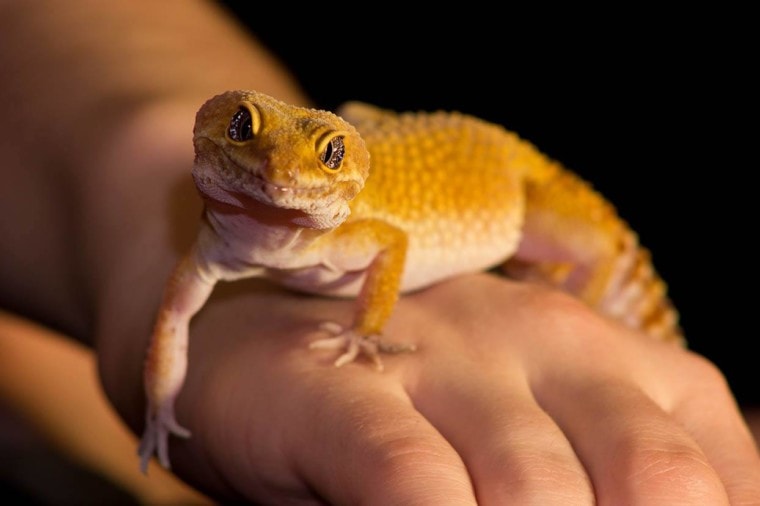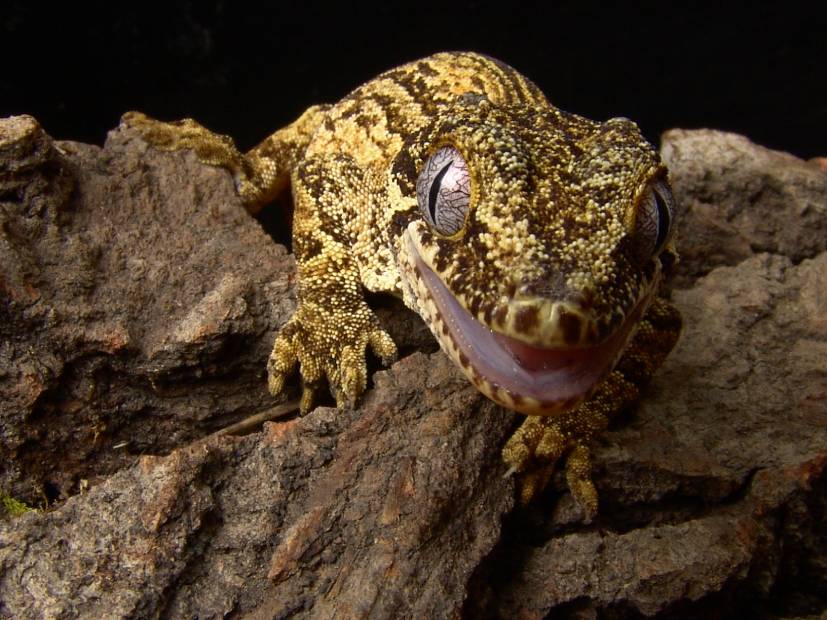
Leopard geckos are fun little pets that children and adults alike tend to enjoy caring for. While they are typically gentle creatures, they do have teeth, which leads to the questions of if they can bite and if it hurts if they do. The short answer is that yes, these little creatures can and may bite. However, there is more to the story.
Yes, a Leopard Gecko Can Bite You. However…
The truth is that your risk of being bitten by a leopard gecko is low. However, you should be aware of how your gecko is acting before handling them, and be aware that a bite could happen, especially if your gecko is brand new to the household. But there is no reason to worry about being bitten for a couple of reasons.
First, leopard geckos can bite but they do so rarely. They do not produce any venom or other toxins, so you do not have to worry about being poisoned or whether the affected area will swell up and become inflamed. There are no medications or treatments necessary to recover from a leopard gecko bite.
Second, leopard gecko bites do not typically hurt. You may feel a pinch or a slight sting if an adult leopard gecko happens to bite you. Baby geckos likely will not inflict pain at all if they bite you. Leopard geckos do not usually draw blood, and a visit to the doctor is not necessary. Washing the affected area is all it should take to sanitize it so you do not end up with any infections.

Common Reasons for Leopard Gecko Bites
Leopard geckos do not bite often. When they do, it is typically because they perceive a serious threat. If they are brand new to you and your household and you try to handle them too quickly, they may be afraid and try to defend themselves by biting you. If they see that you have a meal in your hand for them to devour, they may accidentally bite you while attempting to get at that meal.
A small number of leopard geckos are naturally territorial when it comes to humans invading their habitat, and they may try to bite you any time you pick them up or touch them. However, the chance of experiencing this circumstance is rare. Overall, threatening or stressful situations should be considered high-risk times for bites.
What You Can Do to Avoid Leopard Gecko Bites
The most important thing you can to do avoid being bitten by your pet leopard gecko is to make sure that they always feel safe. Feeling unsafe when you show up can trigger their instinct to bite. If your leopard gecko feels unsafe in their habitat even when you are not around, they may take their stress out on you by biting when you try to touch them.
Choose a place for your leopard gecko’s habitat where the atmosphere is calm and secure. Lighting should be bright enough to see, but not so bright that it glares into their habitat. Loud noises should be limited to rooms other than the one that your gecko is living in. Soothing voices and gentle hands should be used when visiting with your pet. Also, other pets, like cats and dogs, should be kept away from the habitat.

Conclusion
Although leopard geckos can bite humans, your pet gecko will likely refrain from doing so if you are calm, patient, and empathetic while raising them. They will treat you with the same kindness and understanding that you provide them with as time goes on. If you are having problems with your gecko biting you, even after working with them the best that you can, consider visiting a veterinarian to make sure that they are not in distress for health reasons. How do you plan to avoid the risk of your leopard gecko biting you? Let us know about your game plan by leaving us a message in the comments section.
See Also:
- How Big Do Leopard Geckos Get? (Size + Growth Chart)
- Leopard Gecko Sounds & Their Meaning (With Audio)
Featured Image Credit: Svetlanistaya, Shutterstock








